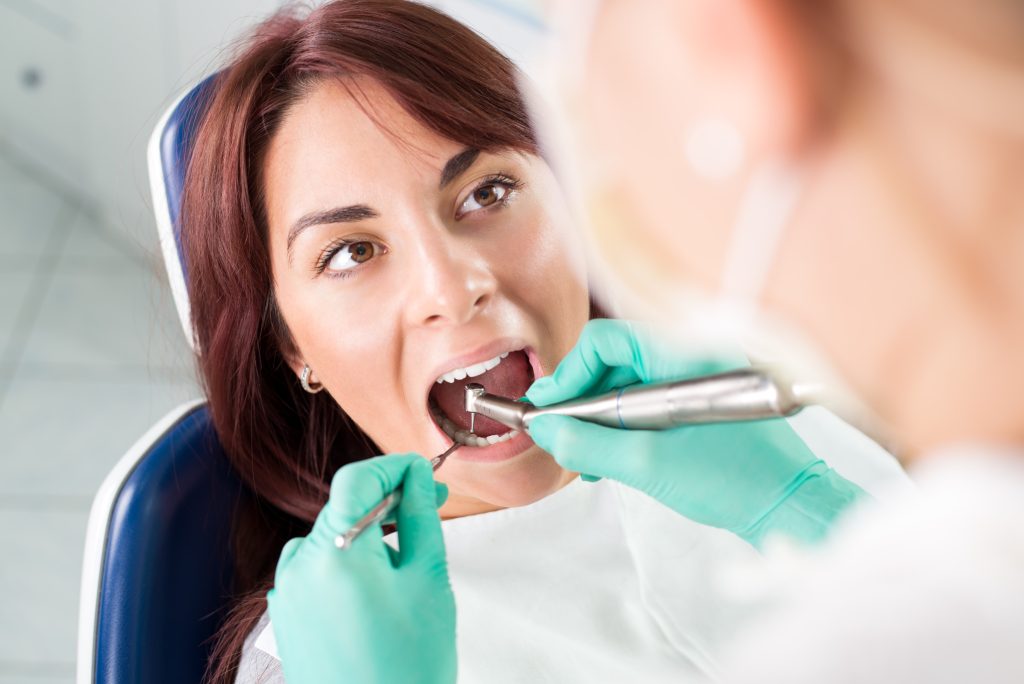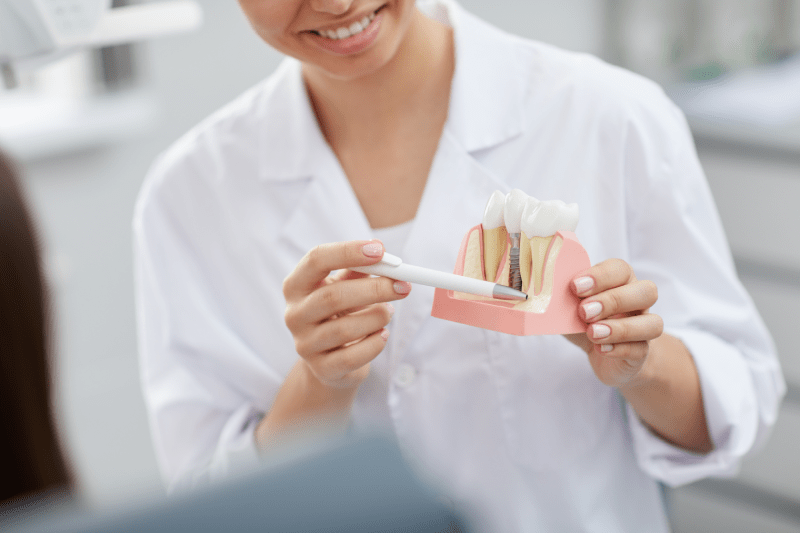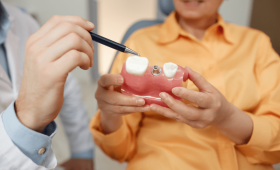What is the average cost of a single dental implant in the Philippines?
The cost of a single dental implant in the Philippines varies widely depending on the implant brand used, the city where the dental clinic is located (e.g., Manila or Cebu), the dentist’s experience, and the complexity of the procedure. Generally, this cost can range from 600 USD to 1,500 USD. This pricing often includes the implant itself, the surgical procedures, and the superstructure (abutment and crown). However, additional treatments (such as bone grafting) can increase the cost.
What are the main factors that affect dental implant prices in the Philippines?
The most important factors affecting dental implant prices in the Philippines are the quality and brand of the implant (premium European or American brands are more expensive), the dentist’s education and level of expertise, the clinic’s modern technology, and its location. Additionally, the condition of the patient’s jawbone and the need for extra procedures (bone grafting, tooth extraction) directly affect the total cost. Prices might be higher at clinics in touristic centres.
How do implant prices in the Philippines compare to other countries?
Dental Implant prices in the Philippines are generally much lower compared to Western countries (USA, UK, European countries). This is due to the country’s lower overall cost of living and operation. However, it also competes with other countries in Southeast Asia, such as Cambodia, Vietnam, or Thailand, that have similar pricing. The Philippines stands out by offering quality service at affordable prices.
What is the cost of “All-on-4” or “All-on-6” implant systems in the Philippines?
The “All-on-4” and “All-on-6” implant systems in the Philippines are more costly than a single implant because they are more comprehensive. The cost of these systems can range from 4,000 USD to 8,000 USD for a single arch. Prices depend on the number of implants used, the material of the prosthetic teeth (porcelain, zirconia), and the additional services offered by the clinic. The “All-on-6” system is generally more expensive than “All-on-4” as it includes more implants.
Are hospitals or private clinics more suitable for dental implant treatment?
Dental implant treatment in the Philippines is generally carried out by private dental clinics, which focus more on international patients. Private clinics become more attractive to patients by investing in modern technology and offering personalised service. In public hospitals, such treatments may be limited, and waiting times are longer, which is why foreign patients mostly prefer private clinics.
What is the lifespan of an implant in the Philippines?
The lifespan of a dental implant placed in the Philippines can last a lifetime with proper care and regular check-ups. The implants themselves (the titanium screw) are very durable as they integrate with the bone. However, the superstructure (crown and abutment) may wear out over time and may need to be replaced after 10-15 years. Good oral hygiene and regular dental visits are vital for extending the implant’s lifespan.
What are the warranty conditions offered by dental implant clinics in the Philippines?
Reputable dental clinics in the Philippines generally offer a warranty for dental implant treatments. This warranty can be for a lifetime for the implant itself, while it ranges from 5-10 years for the prosthetic teeth. The warranty conditions are subject to the patient coming for regular check-ups and maintaining good oral hygiene. Warranty conditions may differ from clinic to clinic.
What kind of additional services are offered for patients from abroad?
For dental tourists coming from abroad, clinics in the Philippines generally offer comprehensive packages. These packages can include airport transfers, accommodation arrangements, and an English-speaking coordinator service to facilitate communication during the treatment period. Some packages may also offer guidance for city tours or other tourist activities during the treatment process. These additional services aim to make the patients’ treatment process more comfortable.

Is implant treatment a painful procedure?
During implant treatment, the patient generally does not feel any pain as they are under local anaesthesia. After the procedure, mild to moderate pain and swelling are normal. These discomforts can be easily managed with painkillers prescribed by the dentist. Thanks to modern surgical techniques, post-operative pain and discomfort are minimal.
Are there payment plans or financing options for implant treatment in the Philippines?
Many dental clinics in the Philippines can offer payment plans, especially for high-cost treatments. These options usually allow patients to pay the total cost in instalments. Although such options are rare for patients coming from abroad, some clinics may require a down payment before starting the treatment and collect the remaining amount after it is completed. It is best to contact the clinic directly about this.
What is the success rate of dental implant treatment?
The success rate of dental implant treatment is quite high when experienced surgeons and quality materials are used. The success rate is generally over 95%. However, this rate may vary depending on the patient’s overall health, smoking habits, and the importance given to oral hygiene. The success rate may be slightly lower in patients with chronic conditions such as diabetes.
How do bone grafting or sinus lift surgeries affect the implant cost?
In patients whose jawbone volume is insufficient for implants, bone grafting (adding bone) or sinus lift surgery for the upper jaw may be required. These additional procedures significantly increase the total cost of the treatment. The cost of a bone graft varies depending on the amount of graft needed and the material used. These costs must be included in the treatment plan beforehand and are generally more expensive than a single implant.
Is there an age limit for dental implant treatment?
There is no upper age limit for dental implant treatment, but the patient must be in good general health. The lower age limit is generally 18 years and over, as the jawbone must have completed its development. Implants placed at a young age may require future correction as the jawbone continues to grow.
What languages do dentists in the Philippines speak?
In the Philippines, with the development of dental tourism, dentists and clinic staff generally speak English fluently. English is widely spoken in the country as it is an official language. This allows foreign patients to communicate comfortably throughout the treatment process. It is beneficial to inquire about the language when contacting the clinic.
What materials are used for an implant’s superstructure (crown)?
An implant’s superstructure (crown) is generally made from materials such as porcelain, zirconia, or acrylic. Porcelain and zirconia crowns offer the most aesthetic appearance and durability, similar to natural teeth. Zirconia is especially ideal for back teeth because it is very resistant to chewing forces. Acrylic crowns are a more affordable option and are generally used for temporary prosthetics.
What is the process for booking an appointment for a dental implant in the Philippines?
The process of booking an appointment for a dental implant in the Philippines is quite simple. Patients generally contact the clinic via phone, email, or social media. In the first contact, information about the patient’s condition is requested, and existing X-rays or other imaging results may be asked for. After this preliminary evaluation, a treatment plan and appointment date suitable for the patient’s travel schedule are determined.
What are the latest technologies used in implant surgery?
The latest technologies used in implant surgery include 3D imaging (CBCT), digital scanning, and computer-aided implant surgery (CAD/CAM). 3D imaging allows the surgeon to see a three-dimensional model of the jawbone and determine the most accurate position for the implant. Digital scanning is a more comfortable and precise method than traditional impressions. These technologies increase the accuracy and success rate of the treatment.
How long does the treatment process take?
The dental implant treatment process can take from a few months to a year, depending on the patient’s condition. The first stage is the placement of the implant in the jawbone, and after this procedure, a waiting period of 3 to 6 months is required for the bone to fuse with the implant (osseointegration). When this process is completed, the second stage, the placement of the permanent prosthetic teeth, is performed.
What is the post-treatment recovery process like?
The recovery process after implant surgery is generally fast. There may be slight swelling and discomfort during the first 24 hours, but these symptoms disappear within a few days. During this period, it is important to eat soft foods, stay away from smoking and alcohol, and pay attention to oral hygiene. The medications and instructions prescribed by the dentist should be followed for a comfortable recovery process.
In what cases is dental implant treatment not suitable?
Dental implant treatment may not be suitable for people with certain health problems such as uncontrolled diabetes, severe gum disease, or osteoporosis. Also, treatment can be difficult for smokers or patients with insufficient bone quality. In such cases, a comprehensive evaluation with a dentist is required to decide whether implant treatment is suitable.
How are implants and prosthetics maintained regularly?
Regular maintenance is vital for the longevity of implants and prosthetics. Dental implants, just like natural teeth, should be brushed at least twice a day and cleaned using dental floss or interdental brushes. Additionally, a professional cleaning and check-up should be done at the dentist at least once or twice a year.
What is revision implant treatment and how much can it cost?
Revision implant treatment is an additional surgical procedure applied in cases where a previously performed implant treatment has failed or requires revision. Such treatments are more complex and require more expertise than the initial surgery. Therefore, the cost can be higher than the initial implant treatment. The cost of revision depends on the procedures to be performed and the surgeon’s experience.
How can I choose a clinic for an implant in the Philippines?
When choosing an implant clinic in the Philippines, it is important to check the clinic’s accreditations, the dentist’s specialty and experience, the implant brands used, and the reviews and references of previous patients. It would also be beneficial to ask about the clinic’s post-treatment care and warranty policies. Choosing a reliable and transparent clinic is key to a successful treatment.
How long does it take to travel for the treatment?
The travel time to the Philippines depends on which country you are coming from. A long flight may be required from most countries to the Philippines. You may need to travel several times during the treatment process: first for the placement of the implants, and then for the placement of the permanent prosthetics. In some cases, these procedures can also be completed in a single trip, but this depends on the patient’s specific situation.

Are temporary teeth included in the cost of treatment?
In single tooth implant treatment, temporary teeth are used to meet the aesthetic and functional needs of patients during the production of the permanent prosthetic and the healing of the implant. These temporary teeth are generally included in the treatment cost. However, this may vary from clinic to clinic, so it is important to clarify this when creating the treatment plan.
Can dental implants cause an allergy?
Dental implants are made of titanium, a biocompatible metal that has excellent compatibility with the human body. Allergic reactions to titanium are quite rare. If a patient has a known allergy to titanium, implants made of a different material such as zirconia can be preferred. Therefore, patients with a history of allergies should definitely state their condition during the preliminary examination.
What tests are performed before treatment?
Before dental implant treatment, your dentist may request imaging tests such as X-rays or 3D tomography (CBCT) to perform a detailed evaluation of your mouth and jawbone. These tests are very important for assessing your bone density, sinus position, and other anatomical structures. Additionally, blood tests may also be requested to evaluate your general health condition.
Do single tooth implants look like natural teeth?
Yes, single tooth implants and the prosthetic tooth placed on them are designed to look and feel like natural teeth. Thanks to modern dental technology and high-quality materials, the prosthetic tooth is personalized according to the patient’s facial and mouth structure. This way, excellent aesthetic results are achieved.
Why is smoking prohibited during the treatment process?
Smoking can seriously negatively affect the success of dental implant treatment. Smoking reduces blood flow in the mouth, which makes it difficult for the implants to fuse with the jawbone and slows down the healing process. It also increases the risk of infection. For this reason, surgeons generally recommend that patients quit smoking a few weeks before and after the surgery.
Do dental implants cause gum recession?
Dental implants do not cause gum recession. On the contrary, they help protect gum health by stopping the bone and tissue loss that occurs with the loss of natural teeth. However, situations like poor oral hygiene or incorrect placement of implants can lead to an infection called peri-implantitis, which can cause gum recession.
How does implant treatment affect speech?
Teeth restored with implants help patients speak more clearly and correctly by replacing missing teeth. Initially, especially when temporary prosthetics are used, some patients may experience a slight adjustment period and their speech may sound a bit different. However, as the brain and mouth muscles get used to the new situation, speech returns to normal completely.
When can I eat normally after the treatment?
It is important to eat soft foods for the first few days after implant surgery. This supports the chewing function without harming the healing process. Generally, a gradual transition to a normal diet can be made after 1-2 weeks. It is necessary to wait for the implants to fully integrate with the bone to be able to chew hard foods comfortably, which usually takes a few months.
Do prosthetic teeth turn yellow or get stained over time?
Zirconia or porcelain prosthetic teeth placed on dental implants are more resistant to color changes or staining, just like natural teeth. However, if regular oral hygiene and cleaning are not performed, plaque and stains can form on their surfaces. Acrylic prosthetics, on the other hand, can be stained more easily than porcelain or zirconia. Therefore, regular maintenance is very important.
What types of anesthesia are used for implant placement?
The most common types of anesthesia used for implant placement are local anesthesia, sedation, and general anesthesia. Local anesthesia only numbs the area being operated on, while sedation relaxes the patient and allows them to remain awake during the procedure. General anesthesia is a method where the patient is completely put to sleep and is preferred for more complex or long-lasting procedures.
Why is dental tourism popular in the Philippines?
The Philippines has become popular in dental tourism because it offers high-quality services at affordable prices, has experienced dentists, modern clinics, and is also a beautiful holiday destination. The treatment costs are much lower compared to Western countries, and patients have the opportunity to combine treatment with a vacation.


